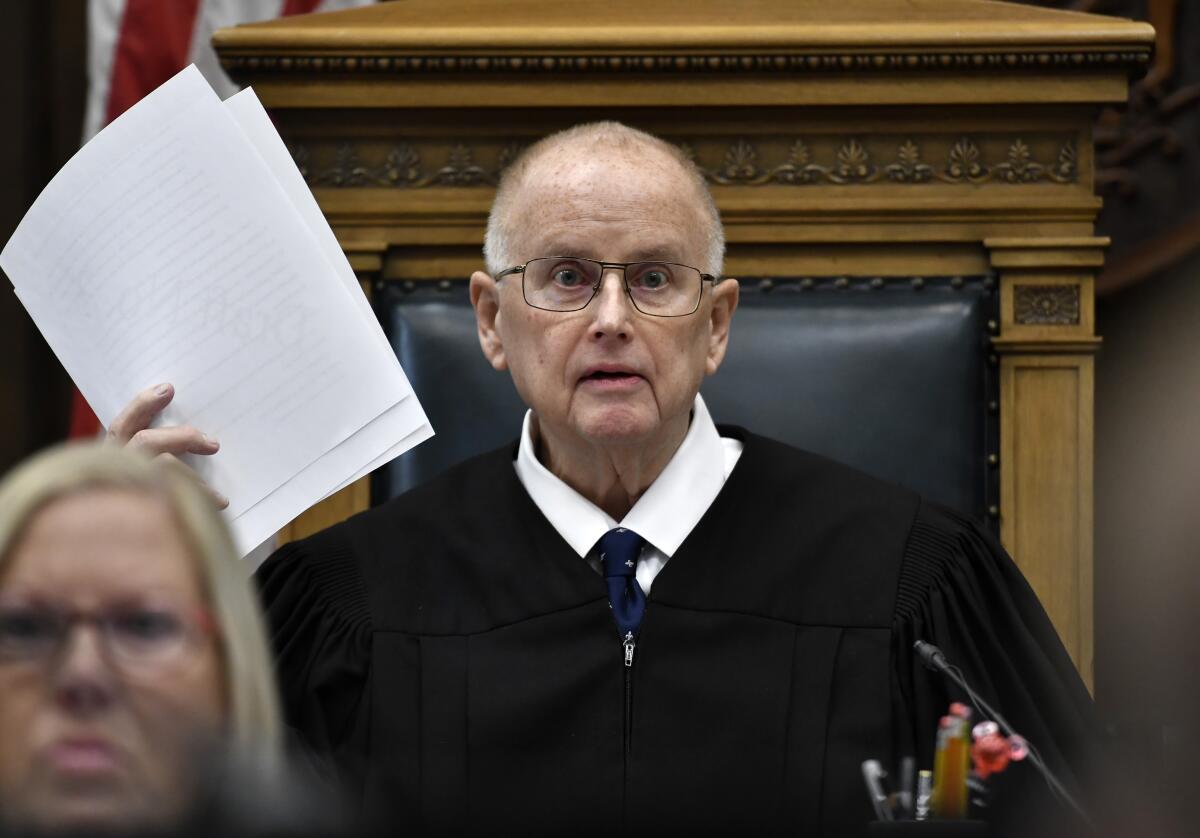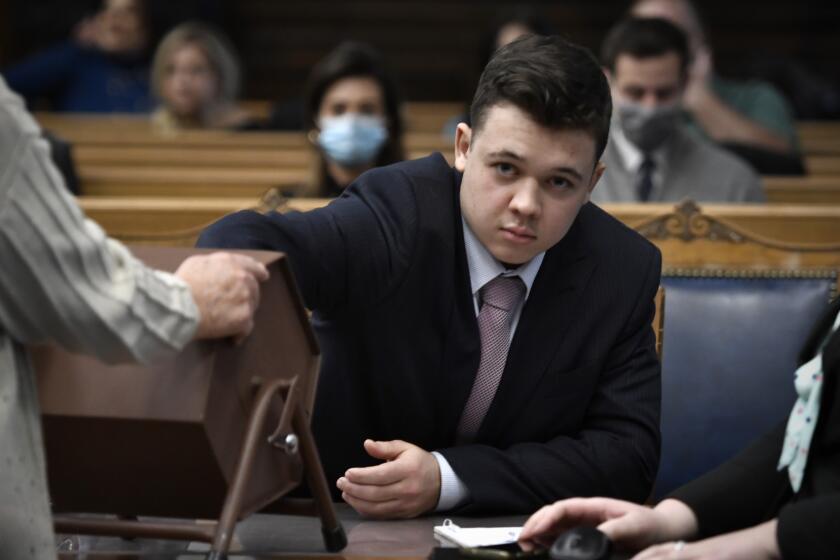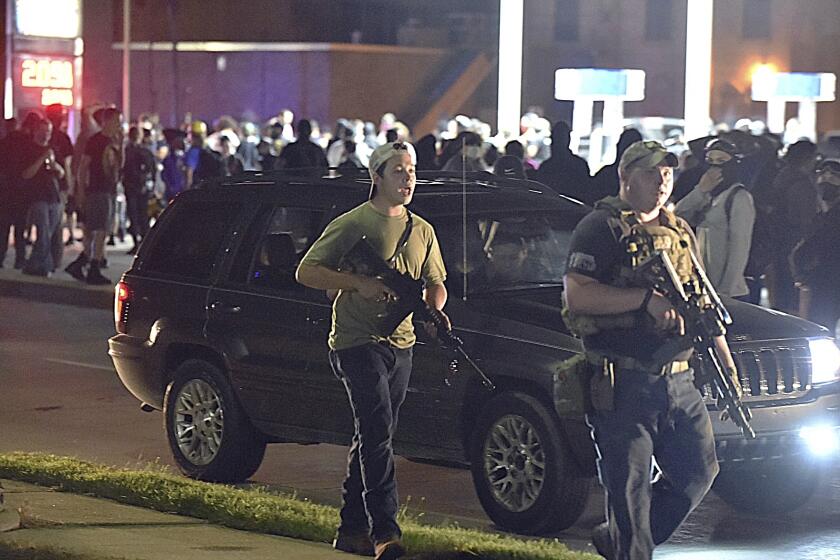Judge has the wrong remedy for ‘bad’ media coverage of Rittenhouse trial

- Share via
Kenosha County Circuit Judge Bruce Schroeder said Tuesday that he’s considering prohibiting live televised coverage in his courtroom because he’s been unhappy with the reporting during the Kyle Rittenhouse trial.
His critiques of the media include “shameful,” “grossly irresponsible” and “frightening.” He’s objected to coverage of his decision not to allow use of the word “victims” to describe the three men whom Rittenhouse shot in Kenosha, Wis., on Aug. 25, 2020, and to permit Rittenhouse himself to draw names of some of his own jurors from a jar. And on Thursday, he banned MSNBC from his courtroom because someone who ran a red light Wednesday, apparently while following a van carrying jurors, was connected with the network.
A booker working for MSNBC was stopped for a traffic infraction while driving a block away from a vehicle transporting jurors in Kyle Rittenhouse’s trial.
Has news coverage of the Rittenhouse trial been outrageous? Well, of course — as well as measured, crazy and calm, irresponsible and exemplary. That’s the case with any high-profile and contentious event that becomes a symbol of national social and political divisions and for which there are multiple points of view. Schroeder’s error, as is the case with many observers, is to pretend there is some monolithic “media” that has a singular mind and method.
Schroeder is tasked with ensuring a fair trial, and it was perhaps to that end he banned the word “victims.” Depending on the jury verdict and the parties’ response, an appellate court may consider whether his decision on the matter was an appropriate safeguard or a prejudicial and reversible error.
In the meantime, the “media,” meaning reporters and commentators, will weigh in — and on his ruling to drop a gun charge, his cranky outburst at a prosecutor and his stupid comment about Asian food. That’s their job. That conversation may be at the heart of viewership and page view numbers, but it’s also at the heart of democracy. It’s not up to any judge to measure the quality or the accuracy of what’s reported. The best response to poor quality reporting (or rather, any observer’s subjective assertion that reporting is of poor quality) is more reporting. Messy? Of course. Democracy can be messy.
An acquittal wouldn’t just set Rittenhouse free, it would set a legal precedent for other citizens to grab a gun and take the law into their own hands.
Whether Schroeder has done an exemplary or a miserable job of ensuring a fair trial, he is dead wrong about the proper remedy for what he considers shameful, grossly irresponsible and frightening. Prohibiting live TV coverage in the courtroom obviously would not end reporting or commentary on a high-profile case. It would merely deprive the public of direct access to proceedings in order to draw their own conclusions. The only real purpose of banning cameras and live coverage would be to punish the “media” for reporting or commentary the judge doesn’t like. That would be manifestly improper.
Likewise, the judge may be quite right to protect jurors from people following their bus in order to take their picture (if that is indeed what happened; MSNBC denies it), but his sanction — banning a media outlet from the courtroom to cover the verdict — seems unrelated to the alleged offense.
Schroeder has made it clear he doesn’t like what’s being said about him (and presumably he’d take issue with this editorial as well), but so what? He’s got a courtroom to run. It’s up to the rest of us to watch what’s going on, and to talk and write about it.
More to Read
A cure for the common opinion
Get thought-provoking perspectives with our weekly newsletter.
You may occasionally receive promotional content from the Los Angeles Times.











